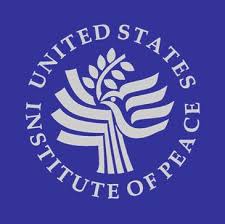Truth Commission: Ghana

Truth Commission: National Reconciliation Commission
Duration: 2003 - 2004
Charter: National Reconciliation Act No. 611
Commissioners: 9
Report: Public report
Truth Commission: National Reconciliation Commission
Dates of Operation: January 14, 2003 – October 14, 2004 (21 months)
Background: Since February 1966, Ghana experienced four military coups and a series of civilian regimes accused of human rights violations. Three periods of unconstitutional rule, characterized by military takeovers, occurred between 1966 and 1969; 1972 and 1979; and 1981 and 1993. The country faced serious economic problems made worse by a draught in 1982 and 1983. Under pressure to hold elections, Lt. Jerry John Rawlings, the popular leader of previous military takeovers in 1979 and in 1981, was elected president in 1993.
Rawlings implemented draconian anti-corruption measures, reformed the economy but did not tolerate opposition to his rule. Rawlings decided not to run for another term at the elections in 2000. Vice-Presient John Atta-Mills, the candidate of Rawlings’ party, lost and John Agyekum Kufuor was elected, marking the first peaceful democratic transition of power since Ghana gained independence.
When John Agyekum Kufour became president in 2001, he created the National Reconciliation Commission to investigate human rights abuses committed during the unconstitutional past regimes and to foster an environment of government transparency and accountability.
Charter: National Reconciliation Act No. 611, January 11, 2002
Mandate: The National Reconciliation Commission’s mandate was to promote national reconciliation among Ghanaians by establishing "an accurate and complete historical record" of human rights violations and abuses related to the killing, abduction, disappearance, detention, torture, ill-treatment, and seizure of property during three periods of unconstitutional government between March 6, 1957 and January 6, 1993. Any person could apply to have the commission investigate specific issues within its mandate. The commission was also empowered to make recommendations for redress of victims and institutional reform.
Commissioners and Structure: The National Reconciliation Commission was comprised of nine Ghanaian commissioners: six men and three women. It was chaired by Former Chief Justice K. E. Amua-Sekyi.
Report: The commission finished its final report in October 2004 and it was made public in April 2005.
Findings:
Conclusions
- The Commission heard testimony from 2,129 victims and from 79 alleged perpetrators. The former President, John Jerry Rawlings and the former National Security Advisor, Captain Kojo Tsikata, also testified. It convened over 2,000 public hearings.
- The commission noted in its report that of the period of colonial government contributed to the legacy of human rights abuses.
- It also concluded that law enforcement institutions and the armed forces were responsible for the highest percentage of abuses.
Recommendations
- A Comprehensive reparation program including apologies, a memorial, and monetary compensation was recommended. The amount paid to victims was to be based on type of violations suffered. Funding sources were also recommended. The commission suggested reparations for approximately 3,000 victims of repression under Rawlings’ rule.
- The commission recommended reforms within the prisons, the police and the military.
Subsequent Developments:
Reforms
- According to its submissions to the Human Rights Council in June 2008, Ghana is taking steps to reform its judiciary and aims to tackle corruption in the public sector, however, police brutality is on the rise and the proceedings of the justice system are slow.
Reparations
- The government made a weak commitment to a reparations plan, blaming a lack of funding options.
- The government started a reparations program in fall 2006. A reparations committee was mandated to ensure compliance with the recommendations of the reconciliation commission.
Special Notes: No plans were made for the dissemination of the Commission’s final report. Although available commercially, it was too expensive to be easily accessible to the people of Ghana. Civil society organizations played an important role in facilitating a consultative process to discuss the commission’s mandate.
Sources:
- Attafuah, Ken Agyemang. "An Overview of Ghana's National Reconciliation Commission and its Relationship with the Courts." Criminal Law Forum 15, no. 1-2 (2004): 125-134.
- Center for the Study of Violence and Reconciliation. "Justice in Perspective - Africa - Ghana National Reconciliation Commission." Available at http://www.justiceinperspective.org.za/index.php?option=com_content&task=view&id=15&Itemid=19 (accessed July 1, 2008).
- Hayner, Priscilla B. Unspeakable Truths: Facing the Challenge of Truth Commissions. New York: Routledge, 2002.
- Human Rights Council, Eighth session, Agenda item 6 (A/HRC/8/36). Universal Periodic Review: Report of the Working Group on the Universal Periodic Review: Ghana, May 29, 2008. Available at http://lib.ohchr.org/HRBodies/UPR/Documents/Session2/GH/A_HRC_8_36_Ghana_E.pdf (accessed August 7, 2008).